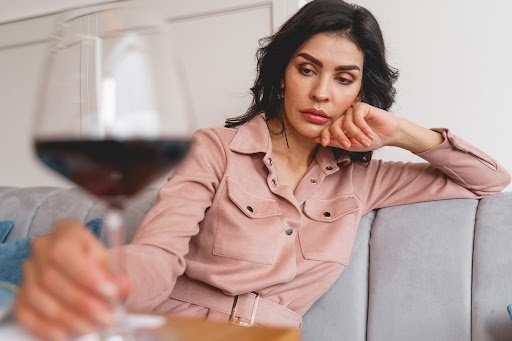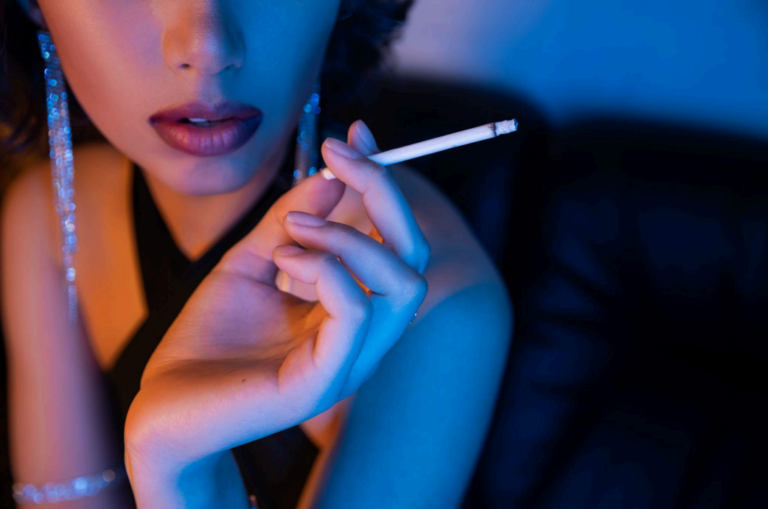The relationship between stress, anxiety, and alcohol consumption is often cyclical. Many individuals turn to alcohol as a means of coping with stress, only to find that their anxiety worsens over time due to their drinking habits. This vicious cycle can be challenging to break, but hypnotherapy offers a promising solution. By addressing the underlying causes of anxiety and altering unhealthy patterns of behaviour, hypnotherapy can help individuals transition from a state of stress to one of sobriety. In this article, we’ll explore how hypnotherapy can be used to combat alcohol-induced anxiety and provide practical steps for incorporating this therapeutic technique into your recovery journey.
Understanding Alcohol-Induced Anxiety
Alcohol-induced anxiety refers to the heightened levels of anxiety experienced as a result of excessive alcohol consumption. While alcohol might provide temporary relief from stress and anxiety, its long-term effects can exacerbate these issues. Understanding the impact of alcohol on anxiety is crucial for developing effective strategies to manage it.
The Impact of Alcohol on Anxiety
- Temporary Relief: Alcohol is a depressant that can initially produce feelings of relaxation and euphoria. This temporary relief can make it an attractive coping mechanism for those dealing with stress and anxiety.
- Rebound Anxiety: As the effects of alcohol wear off, rebound anxiety can occur. This heightened state of anxiety can be more intense than the original stress, leading to a cycle of drinking to alleviate these feelings.
- Impact on Sleep: Alcohol disrupts sleep patterns, leading to poor-quality sleep and increased anxiety levels. Lack of restful sleep can further exacerbate stress and anxiety.
- Neurochemical Imbalance: Chronic alcohol consumption alters the brain’s chemistry, affecting neurotransmitters such as serotonin and dopamine. These changes can lead to increased anxiety and depression over time. Understanding the impact of alcohol on mental health is crucial in managing these triggers effectively. For more information on how alcohol affects mental health and contributes to anxiety, visit Drinkaware.
Recognising these effects is the first step in breaking the cycle of alcohol-induced anxiety. Hypnotherapy can offer a path to recovery by addressing the root causes of anxiety and promoting healthier coping mechanisms.
The Role of Hypnotherapy in Combating Alcohol-Induced Anxiety
Hypnotherapy is a therapeutic technique that uses guided relaxation, focused attention, and positive suggestions to access the subconscious mind. In this state, individuals are more open to suggestions that can help change their thoughts, feelings, and behaviours.
How Hypnotherapy Works
Hypnotherapy works by bypassing the conscious mind and accessing the subconscious, where deep-seated habits and beliefs are stored. Through positive suggestions and visualisation, hypnotherapy can help reframe negative thought patterns and associations with alcohol, reducing anxiety and promoting sobriety.
For additional support, consider using the recording “Stop Drinking Go Sober” available on the Feel Amazing app by Ailsa Frank. This guided session can help reinforce the techniques discussed in this article, providing a valuable resource for those looking to manage their alcohol cravings effectively.
Benefits of Hypnotherapy for Alcohol-Induced Anxiety
- Reducing Anxiety: Hypnotherapy can help reduce anxiety levels by promoting relaxation and addressing the underlying causes of stress.
- Breaking Negative Patterns: By altering the subconscious associations with alcohol, hypnotherapy can help break the cycle of drinking to cope with anxiety.
- Enhancing Self-Esteem: Positive affirmations during hypnotherapy can boost self-esteem and confidence, empowering individuals to make healthier choices.
- Improving Sleep: Hypnotherapy can promote better sleep patterns, which are essential for reducing anxiety and improving overall well-being.
- Developing Coping Mechanisms: Hypnotherapy can help individuals develop healthier coping mechanisms for managing stress and anxiety without relying on alcohol.
Techniques Used in Hypnotherapy for Alcohol-Induced Anxiety
1. Relaxation Techniques
Relaxation techniques are a fundamental component of hypnotherapy. These techniques help individuals achieve a state of deep relaxation, reducing anxiety and making them more receptive to positive suggestions.
Examples of Relaxation Techniques:
- Deep Breathing: Focusing on slow, deep breaths can help calm the nervous system and reduce anxiety.
- Progressive Muscle Relaxation: This technique involves tensing and then relaxing different muscle groups to release physical tension and promote relaxation.
- Guided Visualisation: Visualising calming and peaceful scenes can help reduce stress and create a sense of inner peace.
2. Positive Affirmations and Suggestions
Positive affirmations and suggestions are used to replace negative thoughts and beliefs with positive ones. These affirmations can help individuals build confidence and reduce anxiety.
Examples of Positive Affirmations:
- “I am calm and in control of my emotions.”
- “I choose healthy ways to manage stress and anxiety.”
- “I am free from the desire to drink alcohol.”
3. Regression Therapy
Regression therapy involves exploring past experiences and memories to identify the root causes of anxiety and drinking behaviour. By addressing these underlying issues, individuals can release emotional baggage and reframe their relationship with alcohol.
How Regression Therapy Works:
- Relaxation: The hypnotherapist guides the individual into a deeply relaxed state.
- Exploration: The individual is guided to recall past experiences and emotions related to their drinking behaviour.
- Identification: By exploring these memories, the individual can identify specific triggers and patterns that lead to anxiety and alcohol use.
- Reframing: The hypnotherapist helps reframe these experiences, replacing negative associations with positive ones.
4. Desensitisation Techniques
Desensitisation techniques involve gradually reducing the emotional response to anxiety triggers through repeated exposure in a controlled and safe environment. This can help individuals become less reactive to situations that typically lead to drinking.
How Desensitisation Works:
- Identification: The individual identifies specific triggers for their anxiety and drinking behaviour.
- Exposure: The individual is guided to imagine encountering these triggers while remaining calm and in control.
- Repetition: Through repeated exposure, the emotional response to the triggers is reduced, making it easier to manage anxiety in real-life situations.
5. Self-Hypnosis for Ongoing Support
Self-hypnosis involves using techniques learned in hypnotherapy sessions to guide oneself into a hypnotic state. This can provide ongoing support for managing anxiety and reinforcing positive changes.
Steps for Practising Self-Hypnosis:
- Find a Quiet Place: Choose a quiet, comfortable place free from distractions.
- Relaxation: Use deep breathing or progressive relaxation to calm the mind and body.
- Visualisation and Affirmations: Visualise positive scenarios and repeat affirmations related to managing anxiety and staying sober.
- Regular Practice: Practise self-hypnosis regularly to reinforce positive changes and maintain control over anxiety and drinking behaviour.
Hypnotherapist Ailsa Frank recommends working on your confidence to help you drink less. “You probably began your drinking journey at a younger age when you lacked confidence. Perhaps you went with the crowd or you may have led from the front to encourage excess drinking as you needed it to feel good,” says Ailsa.
“It is time to be the real YOU without alcohol. You have enough life experience and skills to be more than capable to live a more successful and comfortable life without alcohol controlling you. Say to yourself ‘I am amazing and I no longer need alcohol to feel good. I am better with less alcohol.’ She also suggests, “Invest your money in a confidence course or learn a new skill to improve your earning capacity. Invest your time and energy into worthwhile projects that will pay off throughout your life.”
Practical Steps for Using Hypnotherapy to Combat Alcohol-Induced Anxiety
1. Seek Professional Guidance
Working with a trained hypnotherapist can provide personalised guidance and support. A professional can tailor sessions to your specific needs and help you address any underlying issues related to anxiety and alcohol use.
2. Set Clear Goals and Intentions
Before starting hypnotherapy, set clear and specific goals for managing your anxiety and reducing your alcohol intake. Decide what you want to achieve, such as reducing the frequency of anxiety episodes or building healthier coping mechanisms.
3. Practice Regularly
Consistency is key to the effectiveness of hypnotherapy. Practice self-hypnosis or attend sessions regularly to reinforce new habits and beliefs. Over time, these new patterns will become ingrained, making it easier to manage anxiety and maintain sobriety.
4. Combine Hypnotherapy with Other Supportive Practices
Hypnotherapy can be more effective when combined with other supportive practices, such as counselling, support groups, mindfulness meditation, and physical exercise. These practices can help you build a strong foundation for long-term success.
5. Monitor Your Progress and Celebrate Achievements
Keep track of your progress by journaling your experiences and noting any challenges or successes. Celebrate milestones, no matter how small, to stay motivated and reinforce your commitment to managing anxiety and reducing alcohol intake.
6. Be Patient and Compassionate with Yourself
Change takes time, and it’s important to be patient and compassionate with yourself throughout the process. If you experience setbacks, don’t be discouraged. Use them as opportunities to learn and adjust your approach. Remember that every step toward managing anxiety and reducing alcohol use is a positive one.
Conclusion
From stress to sobriety, hypnotherapy offers a powerful and holistic approach to combating alcohol-induced anxiety. By addressing the subconscious mind and altering unhealthy patterns of behaviour, hypnotherapy can help individuals reduce their anxiety, break the cycle of alcohol dependence, and achieve lasting sobriety.
Whether you choose to work with a professional hypnotherapist or practice self-hypnosis, incorporating hypnotherapy into your recovery journey can provide the support and tools you need to manage anxiety and take control of your drinking behaviour. Embrace the path to sobriety with confidence and determination, knowing that hypnotherapy can help you achieve a healthier, more balanced life. For additional support, consider using the ‘Stop Drinking Go Sober’ recording available on the Feel Amazing app.





